- Administrator
- Albums and Singles
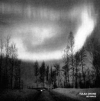 Wading out of the woods and into the snow with a sound all their own,Tulsa Drone cause a range of emotions to well up on their powerfuldebut. Guitar/bass/drums/hammered dulcimer is not a combination onehears everyday, and as soon as the slight strangeness of it all faded Isettled in for whatever came next. Lo and behold, they have somethinghere, as this is the most unique and powerful music I have heard inmonths. It puts me in a place of complete wonder, like a little boystepping into a new experience like flying on an airplane for the firsttime. Tulsa Drone have been using trains in their promotional postersrecently, and to me that's extremely appropriate, as their music is adrifter's: hopping train car to train car looking for work in the nexttown, trying desperately to improve a station of life that was down andout to begin with. The Drone in their name is a bit of a misnomer tome, as there is no real drone in this music, no constant that echoes inand out on itself that continues for minutes. That's not a complaint,though, as they've certainly manufactured some fine moments on theirfirst recording. The melodic beginnings of "Chiaroscuro" are stirring,with production heavy on the bass side, and a genuine feel for thedramatic. As the guitars flare, the bass and dulcimer rise to meetthem, then all tumble like lovers together back to the base. "Vendetta"steps up the dulcimer to main instrument status, letting everythingbuild around it, with Spanish guitar and arpreggios painting thepicture of the score that needs settling. Occasionally there are hornsor other sounds added for a little spice or variation, but for the mostpart the music is the same core. I found it fascinating that they foundso many different approaches with the same instruments, and so manythemes to operate under. Some hear "drone" and think "boring." Ifnothing else Tulsa Drone prove that wrong, but at their best the createa new horizon to look towards.
Wading out of the woods and into the snow with a sound all their own,Tulsa Drone cause a range of emotions to well up on their powerfuldebut. Guitar/bass/drums/hammered dulcimer is not a combination onehears everyday, and as soon as the slight strangeness of it all faded Isettled in for whatever came next. Lo and behold, they have somethinghere, as this is the most unique and powerful music I have heard inmonths. It puts me in a place of complete wonder, like a little boystepping into a new experience like flying on an airplane for the firsttime. Tulsa Drone have been using trains in their promotional postersrecently, and to me that's extremely appropriate, as their music is adrifter's: hopping train car to train car looking for work in the nexttown, trying desperately to improve a station of life that was down andout to begin with. The Drone in their name is a bit of a misnomer tome, as there is no real drone in this music, no constant that echoes inand out on itself that continues for minutes. That's not a complaint,though, as they've certainly manufactured some fine moments on theirfirst recording. The melodic beginnings of "Chiaroscuro" are stirring,with production heavy on the bass side, and a genuine feel for thedramatic. As the guitars flare, the bass and dulcimer rise to meetthem, then all tumble like lovers together back to the base. "Vendetta"steps up the dulcimer to main instrument status, letting everythingbuild around it, with Spanish guitar and arpreggios painting thepicture of the score that needs settling. Occasionally there are hornsor other sounds added for a little spice or variation, but for the mostpart the music is the same core. I found it fascinating that they foundso many different approaches with the same instruments, and so manythemes to operate under. Some hear "drone" and think "boring." Ifnothing else Tulsa Drone prove that wrong, but at their best the createa new horizon to look towards.Read More
- Administrator
- Albums and Singles
 "Help wanted: former lead singer of grunge and hard rock outfits needsnew direction for forthcoming solo record. Friends and former bandmembers are welcome to apply within." Mark Lanegan might not haveadvertised quite like this for his debut on Beggars, but that's what heended up with for this EP intended as a primer for the record laterthis year. Queens Nick Oliveri and Josh Homme play a number ofinstruments on the majority of the songs and even share songwritingduties, and Greg Dulli — Lanegan's current partner-in-crime from theGutter Twins project — adds flavor here and there. With a roster likethat, the music is bound to be a departure from previous solo records;the question is whether it is a welcome one. I'm holding out hope, butthis group of songs doesn't inspire much confidence. This is chancestaken, trying out a few strange licks and larks, and floating them outfor good measure. There are still strong songs, and if those are anindication of the upcoming full-length, I have no reason to worry. It'sthe misses that bring out a little anxiety. Sure, the cackle andplayfulness that open the EP is pure sex, bump and grind and choircoos, with scorching leads courtesy of Homme. The next track, though,flows into the inane, with Chris Goss singing "He's got the wholeworld..." and Lanegan riffing spoken word over the top. Eventuallythere's a multitude of voices, and then it fades to nothing, or nothingof value anyway. Everywhere that classic swallowed-glass Lanegan voiceturns it out and moves it along, always perfect. It's the music thatfails him from time to time. The cover, obligatory for most EPs thesedays it seems, is Captain Beefheart's "Clear Spot," and it's not worththe time or Alain Johannes' involvement, as it isn't all thatimpressive. And the piano ballad "Lexington Slow Down" is also a strainto listen to for most of it's three minutes. The rest, though is prettystrong and flows nicely. If Lanegan left most of the experimentation tothe wayside on his album, more the better. If not, it's high time tomorph again.
"Help wanted: former lead singer of grunge and hard rock outfits needsnew direction for forthcoming solo record. Friends and former bandmembers are welcome to apply within." Mark Lanegan might not haveadvertised quite like this for his debut on Beggars, but that's what heended up with for this EP intended as a primer for the record laterthis year. Queens Nick Oliveri and Josh Homme play a number ofinstruments on the majority of the songs and even share songwritingduties, and Greg Dulli — Lanegan's current partner-in-crime from theGutter Twins project — adds flavor here and there. With a roster likethat, the music is bound to be a departure from previous solo records;the question is whether it is a welcome one. I'm holding out hope, butthis group of songs doesn't inspire much confidence. This is chancestaken, trying out a few strange licks and larks, and floating them outfor good measure. There are still strong songs, and if those are anindication of the upcoming full-length, I have no reason to worry. It'sthe misses that bring out a little anxiety. Sure, the cackle andplayfulness that open the EP is pure sex, bump and grind and choircoos, with scorching leads courtesy of Homme. The next track, though,flows into the inane, with Chris Goss singing "He's got the wholeworld..." and Lanegan riffing spoken word over the top. Eventuallythere's a multitude of voices, and then it fades to nothing, or nothingof value anyway. Everywhere that classic swallowed-glass Lanegan voiceturns it out and moves it along, always perfect. It's the music thatfails him from time to time. The cover, obligatory for most EPs thesedays it seems, is Captain Beefheart's "Clear Spot," and it's not worththe time or Alain Johannes' involvement, as it isn't all thatimpressive. And the piano ballad "Lexington Slow Down" is also a strainto listen to for most of it's three minutes. The rest, though is prettystrong and flows nicely. If Lanegan left most of the experimentation tothe wayside on his album, more the better. If not, it's high time tomorph again.Read More
- Administrator
- Albums and Singles
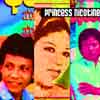 Bizarre radio collages might be the most spectacular examples of AlanBishop's peculiar style of ethnomusicology, but the fewmore-traditional "song" collections available from the Sun City Girl'sSublime Frequencies label provide equally fascinating glimpses intocultures that, while previously documented, have surely never receivedthe kind of treatment Bishop thankfully feels compelled to provide. Thesame guerilla tactics that spawned the string of Radio releases are responsible for Princess Nicotine and its predecessor, Folk and Pop Sounds of Sumatra Vol.1,both discs gathered from tapes Bishop collected over two decades oftraveling through Indonesia and Southeast Asia. In compiling hissouvenirs for release, the label owner flaunts the idiosyncratic and(to a degree) more intimate character of his collections, which, at thevery least, offer a refreshing break from over-ambitious, survey-styledcomps. Bishop's a-scholastic method also serves as introduction tomusic previously avoided by dominant, purist-oriented "world music"markets. "Folk and Pop" become blanket terms to describe an explosionof hybrid styles, mesmerizing mash-ups of traditional Burmese songforms with a range of disparate Western influences often more at oddswith each other than with their Eastern counterparts. Bishop seemsintent on granting these largely undocumented currents, "polluted" bymost ethnomusicologists' standards, the relevance they deserve, and ongrounds of this first volume alone, he has succeeded. Princesswas actually released in a shortened and very limited version back in1994, and it's no wonder the curator has decided to bring it back. Eachof the twelve tracks is an entirely distinct piece of what could becomemy favorite discovery of the year. The Burmese integrate elements ofWestern pop, psych, jazz, even fragments of generic theatre and filmmusic in such unique and self-serving ways that any referentialmaterial becomes blank fodder for compositions singular in both theiremotional immediacy and hallucinogenic grandeur. When it's at allenergetic, the music is utterly wild, with discordant scales collidingon frantic solo flights and cymbal bursts punctuating each intricateturn and jump of the vocalists, often engaged in the intenselystructured call-and-response to which much of the music hinges withmiraculous precision. The calmer tracks are no less astounding;propelled by reeds, violin, chirping flutes, and the incomparable,entirely characteristic Burmese approach to the piano, they are allstrangely psychedelic, breezy but charged with a jazzist edge andenough abrupt shifts and tangential melodic parts to fit with Westernprog definitions. One song sounds like a warped version of antiqueDisney film music; another takes what could be the saccharine,string-laden climax to an off-Broadway ham hit and, through theaddition of only a few thin piano lines and other percussive scatter,creates a string of delicate, truly moving passages. Bishop does notlie when he talks about the "very distinct" nature of this music,something that is unfortunately hard to communicate without relying onWestern points of reference. I will say that previous exposure toseveral of the scant Burmese collections available domestically (evento the Sun City Girls' more adventurous ethnic borrowing) has in no wayprepared me for the treasures of Princess, and, given Sublime Frequencies' rapid release schedule, a second volume should not be far behind.
Bizarre radio collages might be the most spectacular examples of AlanBishop's peculiar style of ethnomusicology, but the fewmore-traditional "song" collections available from the Sun City Girl'sSublime Frequencies label provide equally fascinating glimpses intocultures that, while previously documented, have surely never receivedthe kind of treatment Bishop thankfully feels compelled to provide. Thesame guerilla tactics that spawned the string of Radio releases are responsible for Princess Nicotine and its predecessor, Folk and Pop Sounds of Sumatra Vol.1,both discs gathered from tapes Bishop collected over two decades oftraveling through Indonesia and Southeast Asia. In compiling hissouvenirs for release, the label owner flaunts the idiosyncratic and(to a degree) more intimate character of his collections, which, at thevery least, offer a refreshing break from over-ambitious, survey-styledcomps. Bishop's a-scholastic method also serves as introduction tomusic previously avoided by dominant, purist-oriented "world music"markets. "Folk and Pop" become blanket terms to describe an explosionof hybrid styles, mesmerizing mash-ups of traditional Burmese songforms with a range of disparate Western influences often more at oddswith each other than with their Eastern counterparts. Bishop seemsintent on granting these largely undocumented currents, "polluted" bymost ethnomusicologists' standards, the relevance they deserve, and ongrounds of this first volume alone, he has succeeded. Princesswas actually released in a shortened and very limited version back in1994, and it's no wonder the curator has decided to bring it back. Eachof the twelve tracks is an entirely distinct piece of what could becomemy favorite discovery of the year. The Burmese integrate elements ofWestern pop, psych, jazz, even fragments of generic theatre and filmmusic in such unique and self-serving ways that any referentialmaterial becomes blank fodder for compositions singular in both theiremotional immediacy and hallucinogenic grandeur. When it's at allenergetic, the music is utterly wild, with discordant scales collidingon frantic solo flights and cymbal bursts punctuating each intricateturn and jump of the vocalists, often engaged in the intenselystructured call-and-response to which much of the music hinges withmiraculous precision. The calmer tracks are no less astounding;propelled by reeds, violin, chirping flutes, and the incomparable,entirely characteristic Burmese approach to the piano, they are allstrangely psychedelic, breezy but charged with a jazzist edge andenough abrupt shifts and tangential melodic parts to fit with Westernprog definitions. One song sounds like a warped version of antiqueDisney film music; another takes what could be the saccharine,string-laden climax to an off-Broadway ham hit and, through theaddition of only a few thin piano lines and other percussive scatter,creates a string of delicate, truly moving passages. Bishop does notlie when he talks about the "very distinct" nature of this music,something that is unfortunately hard to communicate without relying onWestern points of reference. I will say that previous exposure toseveral of the scant Burmese collections available domestically (evento the Sun City Girls' more adventurous ethnic borrowing) has in no wayprepared me for the treasures of Princess, and, given Sublime Frequencies' rapid release schedule, a second volume should not be far behind.- Bo HeinBurmese Golden Drum
- Mar Mar AyeBeautiful Town
- Tonte TheintanLover of the Winter and Snow
Read More
- Administrator
- Albums and Singles
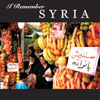 Sublime Frequencies' first double CD continues with the amateurtravelogue aesthetic that's infused nearly all the label's releases todate, and to my ears it is the most successful, in its transportingpower and focused depiction of the rich sound world available in acountry whose cultural legacy has long been consciously ignored byWestern media. Essentially an audio scrapbook assembled by Mark Gergisfrom field recordings made during two trips to Syria near the turn ofthe century, I Rememberperfectly accommodates Gergis' cut-up skills, so essential to hisprevious work in Porest and Monopause. His creation distances itselffrom Alan Bishop's radio collages by assuming a considerably morerelaxed flow, one that allows for the development of some nice thematicundercurrents. Though I Remember contains plenty of radiocaptures, there is little that compares to Bishop's schizophrenicdial-spinning, and the amount of shortwave noisemaking is surprisinglysmall given Gergis' background. A good portion of the two discs comesfrom talk radio segments of political or socially progressiveorientation. The first disc begins framed within the introduction to aprogram called "Syria Today;" later on, reports of theIsraeli/Palestinian crisis emerge alongside light-hearted Youth Radioproductions and one enlightening broadcast entitled "Arab Women inFocus." Some of the most interesting moments are the fragments ofconversations Gergis has with a variety of citizens, including a35-year old homosexual in Aleppo whose wife remains oblivious to hislifestyle, several people eager to share criticisms of America, and agentleman who sounds like a head official of Kazib, a newly-discoveredunderground city. There are recordings from mosque interiors, weddings,nightclubs, street musicians, outdoor markets, even the competingsounds of distorted cassette kiosks. One woman performs a "maternalbedouin" song about Saddam Hussein, presumably at Gergis' request asher hesitant, giggling delivery shows signs of embarrassment orindulgence. The collage is spliced with the expert blends, fades, andjuxtapositions that have made Porest's work so well-liked, and itcovers an immense amount of ground, seamlessly, and without anyalienating jump cuts or premature endings, something that does not holdtrue for all of Bishop's creations. Its increased notation and clearinterest in engaging the rich history and contemporary social andpolitical climates in Syria make I Remember one of the most valuable and listenable items from this great new label.
Sublime Frequencies' first double CD continues with the amateurtravelogue aesthetic that's infused nearly all the label's releases todate, and to my ears it is the most successful, in its transportingpower and focused depiction of the rich sound world available in acountry whose cultural legacy has long been consciously ignored byWestern media. Essentially an audio scrapbook assembled by Mark Gergisfrom field recordings made during two trips to Syria near the turn ofthe century, I Rememberperfectly accommodates Gergis' cut-up skills, so essential to hisprevious work in Porest and Monopause. His creation distances itselffrom Alan Bishop's radio collages by assuming a considerably morerelaxed flow, one that allows for the development of some nice thematicundercurrents. Though I Remember contains plenty of radiocaptures, there is little that compares to Bishop's schizophrenicdial-spinning, and the amount of shortwave noisemaking is surprisinglysmall given Gergis' background. A good portion of the two discs comesfrom talk radio segments of political or socially progressiveorientation. The first disc begins framed within the introduction to aprogram called "Syria Today;" later on, reports of theIsraeli/Palestinian crisis emerge alongside light-hearted Youth Radioproductions and one enlightening broadcast entitled "Arab Women inFocus." Some of the most interesting moments are the fragments ofconversations Gergis has with a variety of citizens, including a35-year old homosexual in Aleppo whose wife remains oblivious to hislifestyle, several people eager to share criticisms of America, and agentleman who sounds like a head official of Kazib, a newly-discoveredunderground city. There are recordings from mosque interiors, weddings,nightclubs, street musicians, outdoor markets, even the competingsounds of distorted cassette kiosks. One woman performs a "maternalbedouin" song about Saddam Hussein, presumably at Gergis' request asher hesitant, giggling delivery shows signs of embarrassment orindulgence. The collage is spliced with the expert blends, fades, andjuxtapositions that have made Porest's work so well-liked, and itcovers an immense amount of ground, seamlessly, and without anyalienating jump cuts or premature endings, something that does not holdtrue for all of Bishop's creations. Its increased notation and clearinterest in engaging the rich history and contemporary social andpolitical climates in Syria make I Remember one of the most valuable and listenable items from this great new label.Read More
- Administrator
- Albums and Singles
 Composed mostly of wandering guitar echoes and fuzzed-out machine noise or rhythms, the heart of these songs lay in their zen-like construction. The eleven songs that make up this record drift by in a fog that sends all images into slow-motion: light becomes amazingly intense and the simplest of movements stand as monuments to the beauty of the body.Noise Factory
Composed mostly of wandering guitar echoes and fuzzed-out machine noise or rhythms, the heart of these songs lay in their zen-like construction. The eleven songs that make up this record drift by in a fog that sends all images into slow-motion: light becomes amazingly intense and the simplest of movements stand as monuments to the beauty of the body.Noise Factory
M.D. Matheson's formula is simple and effective: a lone guitar (sometimes two, one heavily processed) bounces above a wash of percussive loops or noise washes full of coal factories and abandoned warehouses. The melodies are always haunting and carry with them a degree of melancholy, but The Isolationist is never bogged down by drab arrangements or depressingly slow developments. "Killing the Corners" moves along at a walking pace with a steady and easy rhythm of skipping snares, but the mood is that of a cold rainstorm somewhere on the shore of an industrial and rusting city. The formula of guitar-solo plus odd tapes loops and/or rhythms rarely changes, however. The simplicity that drew me half way through the album leaves me a lot bored at times. "Passing Secrets Through the Window" attempts to shift the emphasis from guitars to soft fuzz and eerie radio samples and does so quite well, but it represents only one change of pace; Matheson needs to provide more. In fact, right after the lazy stroll of "Passing Secrets..." Matheson decides he's a little bored and provides the most upbeat (if you can call it that) song on the album. This is a relatively small complaint, though. The melodies are gorgeous, the arrangements come together beautifully (though they are all similar), and the music affects a sense of weightlessness and breathing room that serves as an excellent therapeutic. A change of pace and perhaps a more varied selection of tracks would be great, but I find it hard to complain over these melodies.
samples:
Read More
- TJ Norris
- Albums and Singles
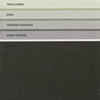 A league of distinguished noisemen emerge with the subtle frayedfilaments of the two extended piece "Brackwater." The title track emitsa genuinely blazing low-fi double-take on what could either be a recordgoin' round and round doused in kerosene, or perhaps the splitting ofthe atom. This sounds like a grand procedure actually, almost like asquared off experiment between a quartet that's been choreographed tosync perfectly. Otomo Yoshihide's turntables blend incredibly well withTomas Korber's synthesized electronic play as ErikM and ToshimaruNakamura mix and otherwise dial-in to add micro-effects and organicfeedback. "Brackwater" is like an interactive carpet of static beingfine tuned, there's something really palpably textural about theircombination playing, with its heart monitor central to the post-climaxof the track, the beat goes on. Twisting into cold hallway like spaces,the entire shift of drama flows into the doubt of nighttime. Korber'sguitar is only hinted at, but makes for unpresumptuous but perceptibleeffect. The addendum "And A Slice of Bread" buzzes propitiously. Thebuild is live, the staging is simple, the panorama widens. They havefiltered much of the general angst normally heard in works that rely onthe effects of their own technical difficulties (feedback, static,whitenoise, other "on-air" sounds). The track renders the artifice ofan arboretum, perhaps created in a communications lab, somethingfuturistic, scientific, lost in a time warp. This one calls for volumeto attain its excessive subtleties.
A league of distinguished noisemen emerge with the subtle frayedfilaments of the two extended piece "Brackwater." The title track emitsa genuinely blazing low-fi double-take on what could either be a recordgoin' round and round doused in kerosene, or perhaps the splitting ofthe atom. This sounds like a grand procedure actually, almost like asquared off experiment between a quartet that's been choreographed tosync perfectly. Otomo Yoshihide's turntables blend incredibly well withTomas Korber's synthesized electronic play as ErikM and ToshimaruNakamura mix and otherwise dial-in to add micro-effects and organicfeedback. "Brackwater" is like an interactive carpet of static beingfine tuned, there's something really palpably textural about theircombination playing, with its heart monitor central to the post-climaxof the track, the beat goes on. Twisting into cold hallway like spaces,the entire shift of drama flows into the doubt of nighttime. Korber'sguitar is only hinted at, but makes for unpresumptuous but perceptibleeffect. The addendum "And A Slice of Bread" buzzes propitiously. Thebuild is live, the staging is simple, the panorama widens. They havefiltered much of the general angst normally heard in works that rely onthe effects of their own technical difficulties (feedback, static,whitenoise, other "on-air" sounds). The track renders the artifice ofan arboretum, perhaps created in a communications lab, somethingfuturistic, scientific, lost in a time warp. This one calls for volumeto attain its excessive subtleties.Read More
 The third full-length album from Yoshimi P-We's female rock quartet, Kila Kila Kila refuses to immediately deliver the goods as generously or bountifully as their previous two albums of densely layered psychedelia. Green and Gold and Feather Float were jam-packed with kaleidoscopic melodies and shimmering guitars, creating thick syrupy whirlpools of hypnotic grooves with saccharine group harmonies and bright, sparkling production. Kila Kila Kila is a more difficult proposition, with Yoshimi P-We veering away from her pop tendencies, preferring instead to emphasize the more abstract and improvisatory elements of her music.
The third full-length album from Yoshimi P-We's female rock quartet, Kila Kila Kila refuses to immediately deliver the goods as generously or bountifully as their previous two albums of densely layered psychedelia. Green and Gold and Feather Float were jam-packed with kaleidoscopic melodies and shimmering guitars, creating thick syrupy whirlpools of hypnotic grooves with saccharine group harmonies and bright, sparkling production. Kila Kila Kila is a more difficult proposition, with Yoshimi P-We veering away from her pop tendencies, preferring instead to emphasize the more abstract and improvisatory elements of her music.
- Administrator
- Albums and Singles
 The third full-length album from Yoshimi P-We's female rock quartet, Kila Kila Kila refuses to immediately deliver the goods as generously or bountifully as their previous two albums of densely layered psychedelia. Green and Gold and Feather Float were jam-packed with kaleidoscopic melodies and shimmering guitars, creating thick syrupy whirlpools of hypnotic grooves with saccharine group harmonies and bright, sparkling production. Kila Kila Kila is a more difficult proposition, with Yoshimi P-We veering away from her pop tendencies, preferring instead to emphasize the more abstract and improvisatory elements of her music.
The third full-length album from Yoshimi P-We's female rock quartet, Kila Kila Kila refuses to immediately deliver the goods as generously or bountifully as their previous two albums of densely layered psychedelia. Green and Gold and Feather Float were jam-packed with kaleidoscopic melodies and shimmering guitars, creating thick syrupy whirlpools of hypnotic grooves with saccharine group harmonies and bright, sparkling production. Kila Kila Kila is a more difficult proposition, with Yoshimi P-We veering away from her pop tendencies, preferring instead to emphasize the more abstract and improvisatory elements of her music.
"Ene Soda" is a sparse call-and-response between Yoshimi's sporadic electric guitar wallops and an array of twinkling bells and effervescent percussion. "Suzuki Ring Neng" takes a cue from Asa Chang and Junray, slowly developing out of clipped phonetic utterances and looped percussive retorts, finally exploding into a luminous Kraut-prog jam, complete with a mesmerizing bassline and chirping synthesizers. OOIOO takes a crack at Tortoise-style post-rock instrumentalism with the energetic jazz of "On Mani," driven by a pount-counterpoint conversation between trumpets and two lively drummers. "Northern Lights" is another extended jazz-rock improvisation, with some oddly mutated vocals and Yamatsuka Eye-trademarked birdcalls forming competing textures. "Aster" is something again entirely again, a 15-minute disparate avant-rock exploration featuring guitar melodies that seem to quote freely from traditional Japanese folk styles, echoed in delicious vocal harmonies that float cloudlike over the driving rhythms. It's hard to say exactly why I don't have the same affection for Kila Kila Kila as I have had for OOIOO's previous albums. It's certainly marvelously produced, with each instrument crisply resonating, each part intertwining into a complex whole. Compared to their past work, however, it feels a little thin and underdeveloped, perhaps a result of Yoshimi's new emphasis on improvisation and away from studio multitracking. That said, it's still a fine album by a talented group that are probably incapable of making anything other than buoyant and adventurous music. 
Read More
- Administrator
- Albums and Singles
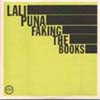 There is no doubt that the pressure has built up for a strong follow-up to the astounding 2001 album Scary World Theory: it was gloriously received by critical acclaim worldwide, followed by trans-continental tours, and a decent amount of well-publicized respect by some of the biggest names in modern rock and pop music.
There is no doubt that the pressure has built up for a strong follow-up to the astounding 2001 album Scary World Theory: it was gloriously received by critical acclaim worldwide, followed by trans-continental tours, and a decent amount of well-publicized respect by some of the biggest names in modern rock and pop music.
While the band didn't crack under pressure, they have clearly taken a step in a direction that might disappoint fans of their other albums. The most noticeable difference is that Faking the Books is much more of a "rock" record than anything the group has done previously. After the mellow and meandering opening title track, "Call 1-800-fear," comes on strong, establishing a more prominent guitar presence than ever. It continues through the album where the drums aren't as programmed as they were in the past, and the feel is much more extroverted and rawkus than the rather timid and reserved Scary World Theory. Electronic hums and twitters sound more like afterthoughts and additional coloration as the album sounds more geared around their live show—perhaps both influenced and built for the stage. "Left Handed" is thankfully included for those who didn't want to shell out for the high priced three-track import, but there isn't much else here that is memorable. The issues I have with this album aren't with the production, the playing, or the melodies, it's with the songwriting this time around I think. Uninteresting lyrics are repeated ad nauseam in nearly every song, almost making the music seem somewhat wasted. While I love the group and love their sound, I do admit however that coming away from this record, I have less songs stuck in my head. Don't get me wrong, I don't hate this album by a long shot, but I can't see myself adoring it as much as I have for them in the past. It's kind of like salsa. Sure, there are people who haven't had salsa, and try it and love it the first few times. Soon enough, everybody gets it with their meals and after a while the only salsa that gets noticed and remembered is the salsa with a certain kick. It far exceeds any expectations, with a taste that is often remembered and desired. I think I'll spend more time with that kind of salsa.
Read More
- TJ Norris
- Albums and Singles
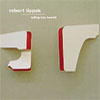 Robert Lippok (To Rococo Rot) has taken Komëit's (Julia Kliemann and Chris Flor) recording "Falling into Place" apart to remodel its contents. He's kept the essential vocals, guitar lines and other critical signatures from the original and just enhanced their lightness of being.Monika Enterprise
Robert Lippok (To Rococo Rot) has taken Komëit's (Julia Kliemann and Chris Flor) recording "Falling into Place" apart to remodel its contents. He's kept the essential vocals, guitar lines and other critical signatures from the original and just enhanced their lightness of being.Monika Enterprise
The purely instrumental "Parade" is a great example as it just glides along. "It's A Good Thing" reverses Flor's guitarloop and highlights the sinewaves in Kliemann's keyboard while adding undercurrents of freshly stripped white noise. The crawling to life simulated toy keys on "Readymades" is a lullaby for shoegazers everywhere. Tentative percussion and playful pitches brighten its melodic sphere. Suddenly the tandem vocal serves a higher confidence on the linguistically ironic "Rearrange" where they sing "Let's melt words together, take these words for real." Vibe-a-riffic "Schemes Like These" is the would-be hit here - groovy underbeat currents and false-start tapping percussion make for something both movement conscious, in an imposing milieu. Closing with "Three Hours" Lippok's homage to his peers seems to end up somewhere between Mr. Rodgers' neighborhood and something more poignant from Pearl Jam, through the eyes of sea monkeys. Kliemann's wet vocal oozes over a repetitive chord and the formalities of a dissonant, hollow piano.
Read More
- Administrator
- Albums and Singles
 Drew Daniel and MC Schmidt's two albums last year both represented departures from their trademark audio strategies. The Civil Warsaw the duo incorporating medieval and American folk elements into aseries of pastoral compositions while The Soft Pink Truth's Do You Party? was Drew Daniel's unique take on leftfield digital disco and bottom-heavy electro. Rat Relocation Programis a return of sorts to the old conceptual bag of tricks; a briefexperimental EP that utilizes the microtonal sampling techniquesfamiliar from Matmos' antebellum days. Slightly less academic than the"amplified neural activity of a crayfish" stuff the duo is known for,the sounds on this release were drawn from recordings of a rat humanelycaptured in the couple's San Francisco apartment. This descriptionimmediately recalls "For Felix (And All the Rats)," a track off of2001's A Chance to Cut is a Chance to Cure that was constructedfrom the bowed and plucked ribcage of their deceased pet rat. Becausethis is volume six in the Locust's Met Life series of "field recordingsand ingenious sound responses," it consists of two tracks: theunaltered recording of the rat protesting its incarceration, andMatmos' digitally processed musical response. I doubt anyone would wantto listen to the fourteen minutes of "Rat" more than once, consistingas it does entirely of piercing rodent shrieks and the sound of tinyclaws trying to breach the metal bars of its cage, with long silencesin between. "Rat Relocation" is a different animal entirely, a longformaudio narrative that preserves the poor creature's squawking, butanswers each shrill cry with a measured electronic response rangingfrom sudden attacks of pummeling drum n' bass, to psychedelic funkexcursions, to minutely detailed DSP fractures that sprinkle the stereochannels with fractal debris. The track feels strangely narrative amidits abstractions, not dissimilar to some of Nurse With Wound's moremercurial sidelong tracks. A clear empathy is created between themusicians and their captured pest, as Matmos attempt to vividlyillustrate the hardwired fight-or-flight instincts of a rat trying toescape its captors, whether they be pacifist animal-loving bohemians orwhite-coated lab technicians. It's an epic on a microcosmic scale.
Drew Daniel and MC Schmidt's two albums last year both represented departures from their trademark audio strategies. The Civil Warsaw the duo incorporating medieval and American folk elements into aseries of pastoral compositions while The Soft Pink Truth's Do You Party? was Drew Daniel's unique take on leftfield digital disco and bottom-heavy electro. Rat Relocation Programis a return of sorts to the old conceptual bag of tricks; a briefexperimental EP that utilizes the microtonal sampling techniquesfamiliar from Matmos' antebellum days. Slightly less academic than the"amplified neural activity of a crayfish" stuff the duo is known for,the sounds on this release were drawn from recordings of a rat humanelycaptured in the couple's San Francisco apartment. This descriptionimmediately recalls "For Felix (And All the Rats)," a track off of2001's A Chance to Cut is a Chance to Cure that was constructedfrom the bowed and plucked ribcage of their deceased pet rat. Becausethis is volume six in the Locust's Met Life series of "field recordingsand ingenious sound responses," it consists of two tracks: theunaltered recording of the rat protesting its incarceration, andMatmos' digitally processed musical response. I doubt anyone would wantto listen to the fourteen minutes of "Rat" more than once, consistingas it does entirely of piercing rodent shrieks and the sound of tinyclaws trying to breach the metal bars of its cage, with long silencesin between. "Rat Relocation" is a different animal entirely, a longformaudio narrative that preserves the poor creature's squawking, butanswers each shrill cry with a measured electronic response rangingfrom sudden attacks of pummeling drum n' bass, to psychedelic funkexcursions, to minutely detailed DSP fractures that sprinkle the stereochannels with fractal debris. The track feels strangely narrative amidits abstractions, not dissimilar to some of Nurse With Wound's moremercurial sidelong tracks. A clear empathy is created between themusicians and their captured pest, as Matmos attempt to vividlyillustrate the hardwired fight-or-flight instincts of a rat trying toescape its captors, whether they be pacifist animal-loving bohemians orwhite-coated lab technicians. It's an epic on a microcosmic scale.Read More
